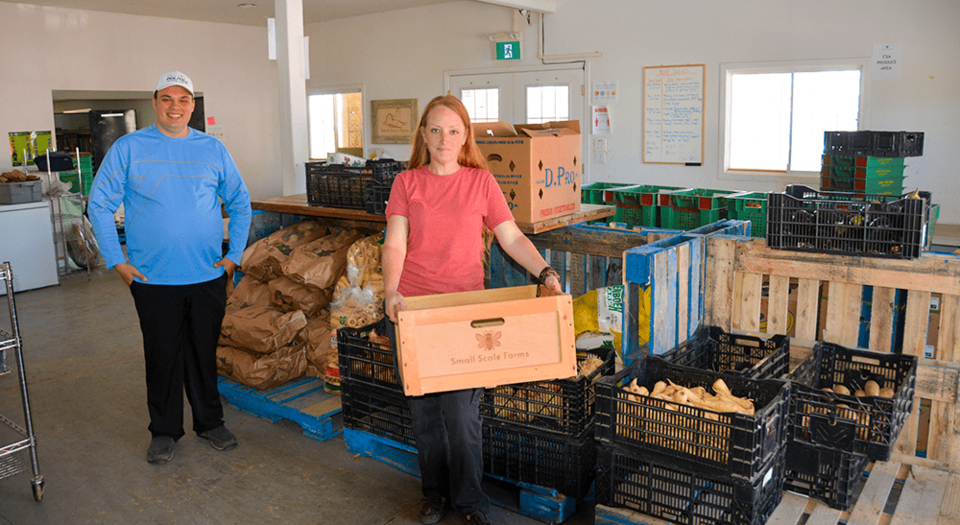Small Scale Farms advocates food hubs over food banks
Renee Delaney is the owner and founder of Small Scale Farms, on Lundy’s Lane in Allanburg, where she leases 19 acres, and along with dozens of volunteers is working to “create an ecosystem that's essential to human welfare.”
She calls her business a “social enterprise,” and stresses that food security is a topic that deserves much more attention. “There is no perfect existing system, it has to be built. What we're doing is essentially modeling a genuine food hub, with multiple distributors, multiple farmers, multiple customers,” she said. “This is a profit centre. Why force me to be a charity? The charity is the broken model.”
Welland-based social advocate and recently filed Welland City Council candidate Steven Soos agreed, saying, “That's why we are pushing for greater promotion of the Local Food Act through the municipalities, because it is provincial legislation, and was actually implemented to create more food systems and markets for projects like Renee is operating.”
Delaney asserts that greater responsibility is required in the distribution of food to Niagara residents in need, not just more money for food banks.
“Food is currency,” she declared, noting that the United Way of Niagara estimated 50,000 people were food insecure in 2020, while local grocery store shelves are heaped with produce.
Soos and Delaney gave a presentation to the Niagara Region Agricultural Policy and Action Committee on April 30, the topic being expanding access to nutritional food throughout the Niagara Region. Key points included the need for community-supported agriculture, petitioning the Minister of Agriculture to increase purchasing power around access to food, improved identification of local products in existing supply chains, and encouraging the development of new markets for local food producers.
Growing up in a family of modest means in Niagara Falls, Delaney attended Stamford Collegiate, and later moved west in an effort to escape “that mental health/drug addiction/poverty cycle” she saw all around her in the border city. But she returned to Niagara as a single mom, and retrained as a homeopath. Delaney discovered the connection between healthy food and healthy lives, and realized the impact of local farms on a community, giving residents an opportunity to plant, harvest, and share their own nutritious food.
It’s a sign of a broken community—you don't steal if you have enough, right?
Delaney displayed her seed greenhouse and a pesticide-free wild garden, with celery, rhubarb, sunflowers, garlic, and many other nutritious plants and vegetables. She also has chickens and bee hives on site. Delaney noted that someone stole strawberries growing in the greenhouse recently.
“It’s a sign of a broken community—you don't steal if you have enough, right? The fact of the matter is if people don't have sufficient to eat [and] going to the food bank is not the solution.”
Children in particular are vulnerable to food insecurity, and studies have shown a correlation between low school performance and a poor diet.
“And if adults aren't eating a healthy nutritional diet, how are they supposed to be labour productive?” asked Delaney.
Small Scale Farms hosted a drive-thru food event on April 17, which Delaney said attracted hundreds of vehicles and patrons eager to purchase food at a price of $40 per bag. The farm has a subscription-based delivery service, with those who can pay full price helping subsidize the pay-what-you-can program.
“People understand our model of sustainability,” said Delaney.
The Niagara Farm Project is another resource that has Delaney’s involvement.
“It’s more than a community garden, it’s an eco-friendly initiative, a shift in perspective, a synergy in food cooperation,” she said.
For more information on Delaney’s own food security movement, go to smallscalefarms.ca. Details of the Niagara Farm Project can be found at mylocalconnection.com.



